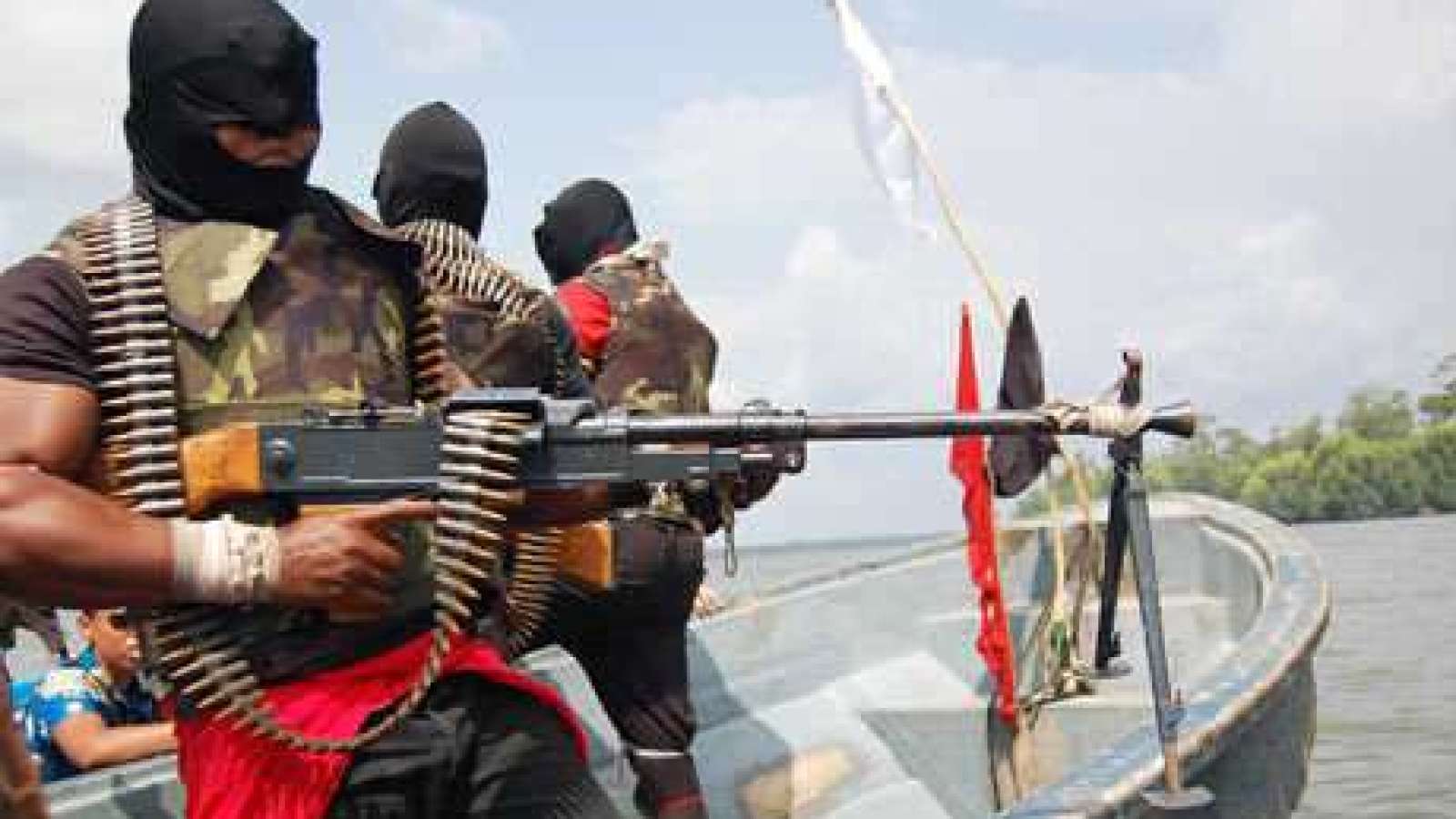Militants under the aegis of the Niger Delta Avengers on Thursday threatened to halt crude oil flow from the Niger Delta and cripple the economy if President Muhammadu Buhari is re-elected.
The group decried what it described as the “continuous criminal exploitation and exploration of our natural resources that engender the underdevelopment of the Niger Delta.”
In 2016, the nation saw a resurgence of militant attacks on oil and gas facilities in the Niger Delta, causing oil production to plummet to near 30-year lows of around 1.6 million barrels per day in August that year.
The militants were behind a wave of oil production disruption that helped push the country into its first recession in 25 years. A ceasefire reached in August 2016 helped pull the country out of recession in the second quarter of 2017.
The group, which has been demanding a greater share of the oil revenue produced in the region, said in a statement that it had adopted the presidential candidate of the Peoples Democratic Party, Atiku Abubakar, as its preferred choice.
“We are adopting Alhaji Atiku Abubakar as the sole candidate to be voted for by all the people of the Niger Delta as a result of his political ideology, which is in tandem with our agitation for equitable and fair principles of federalism,” it said.
The NDA, in a statement posted on its website, warned that if Buhari was re-elected, there would be “a perpetual recession for Nigeria.”
Atiku has proposed to devolve more power to regions in a policy dubbed “restructuring” that would give states greater control over their finances.
It would enable oil-rich states in the south to retain a greater share of the revenues generated from crude production.
The NDA said, “The High Command of the Niger Delta Avengers is convinced that when elected, the government of Alhaji Atiku Abubakar will not only restructure Nigeria but will reverse the inimical ownership rights to natural resources…”
The militants said that if elected, Atiku should start a “restructuring of Nigeria” within six months to forestall further agitation from the Niger Delta.
They warned members of the international community, multinational corporations and their subsidiaries to withdraw their workforce and services from the Niger Delta within the period of the elections in order “not to be casualties to the ongoing provocation in the Niger Delta by the Nigerian Military.”
Bloomberg reported on Thursday that heavily armed Nigerian troops crouched behind sandbags outside Royal Dutch Shell Plc’s Kolo Creek pumping station, underscoring the tension pervading the region before general elections on Saturday.
Army and police checkpoints were said to have dotted the surrounding roads and waterways, where residents were routinely searched.
“We are in charge of the struggle now and our strike teams are active and gallantly waiting to receive instructions from the High Command to cripple the Nigerian economy again if Buhari is rigged back to office; and this time it will be a perpetual recession for Nigeria as we shall not relent until oil stops to flow in the pipes that brace our feet in our land,” the NDA said.
Attacks on pipelines and other facilities in the Niger Delta in 2016 cut the nation’s crude oil output from a peak of 2.2 million barrels per day to near 1 million bpd.
That, combined with low oil prices, pushed the country into its first recession in a quarter of a century as crude sales make up two-thirds of government revenue and 90 per cent of its foreign exchange.
The Punch

 News6 years ago
News6 years ago
 Featured6 years ago
Featured6 years ago
 Boss Picks6 years ago
Boss Picks6 years ago
 Headline6 years ago
Headline6 years ago
 Headline6 years ago
Headline6 years ago
 Headline5 years ago
Headline5 years ago
 Headline6 years ago
Headline6 years ago
 Headline6 years ago
Headline6 years ago














